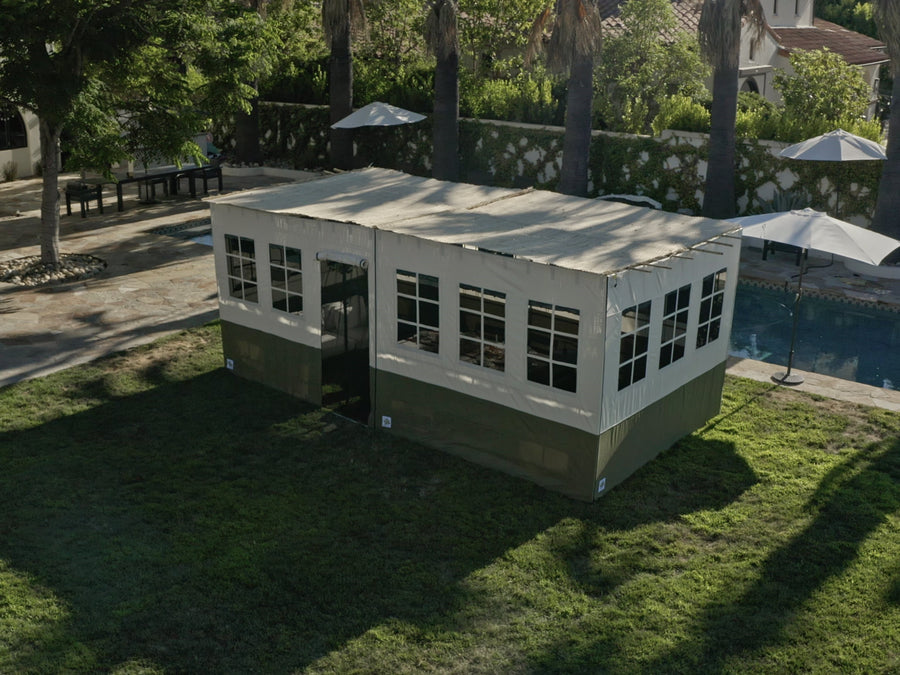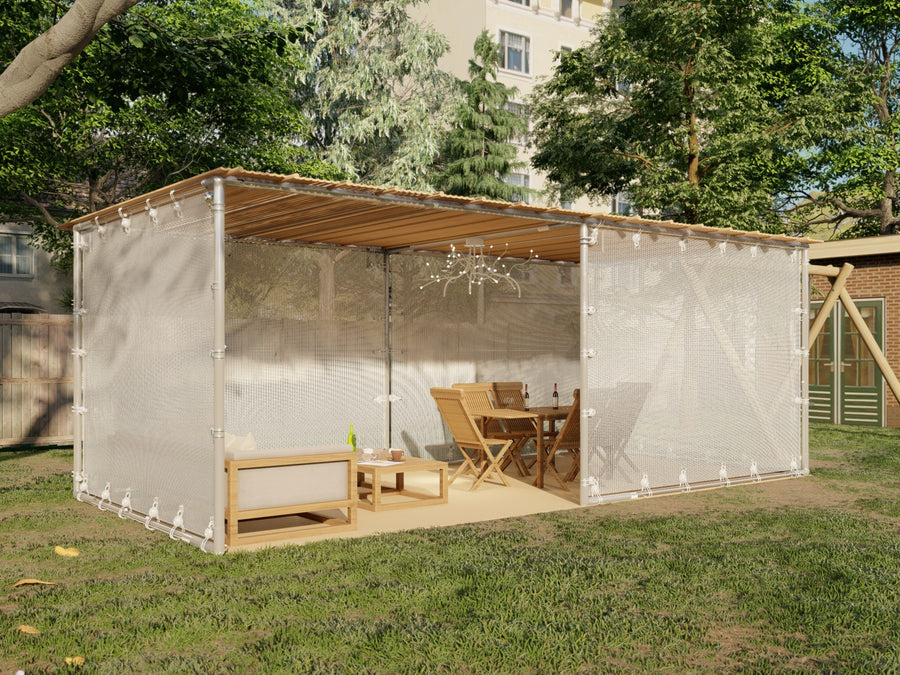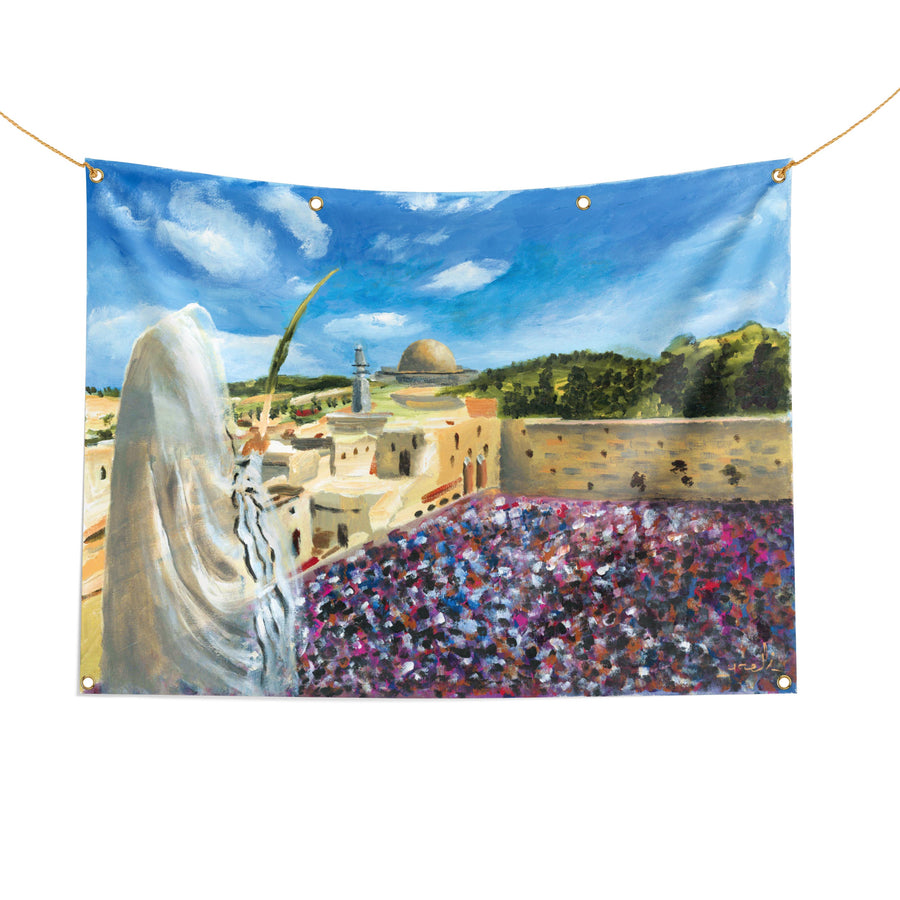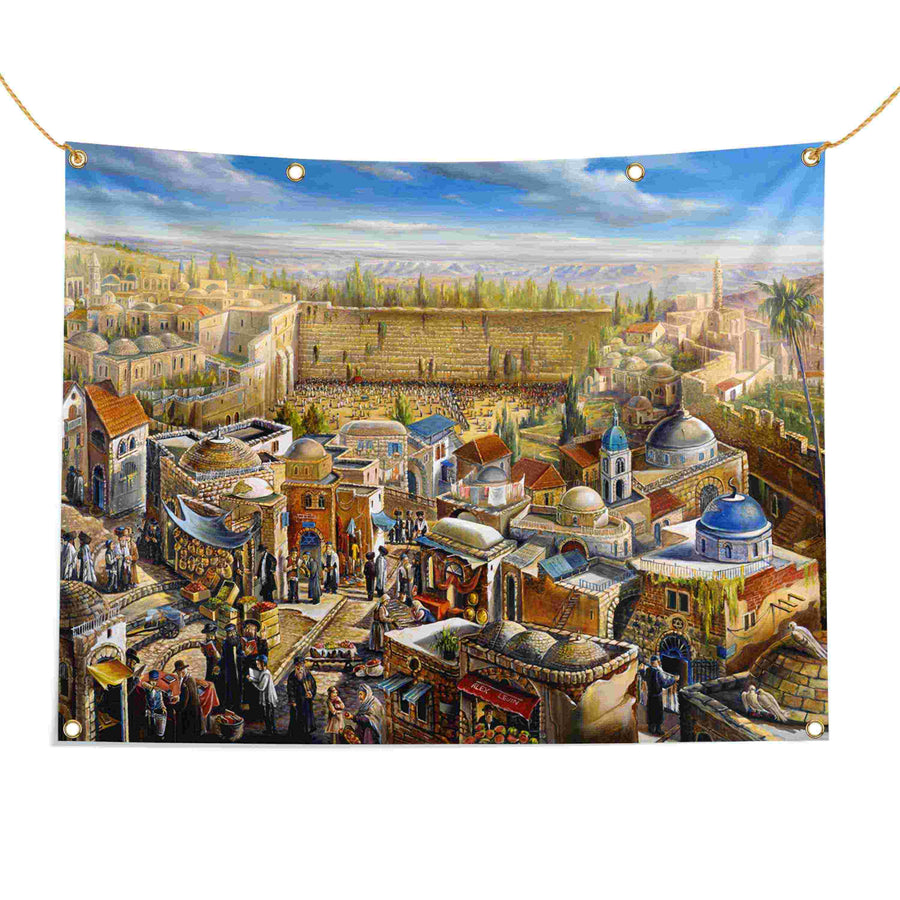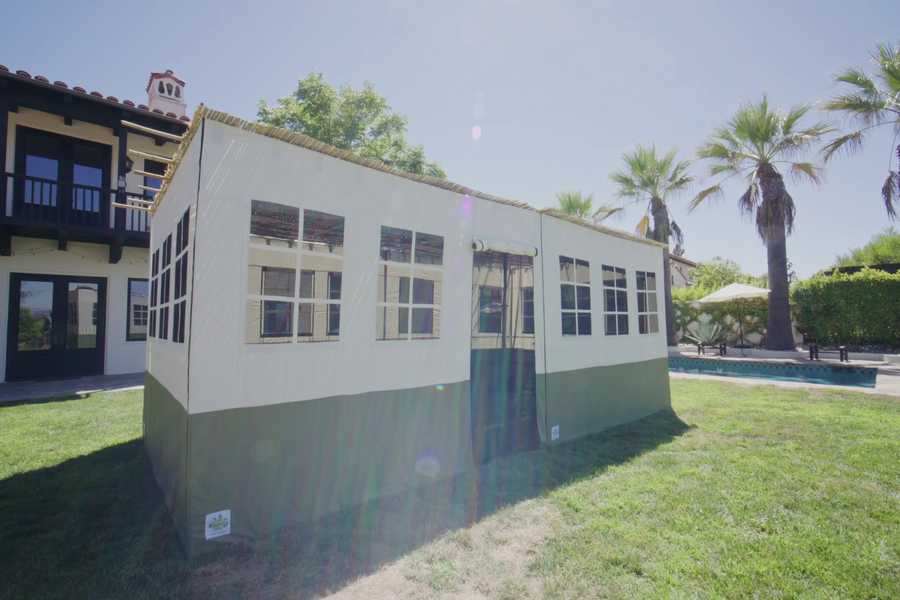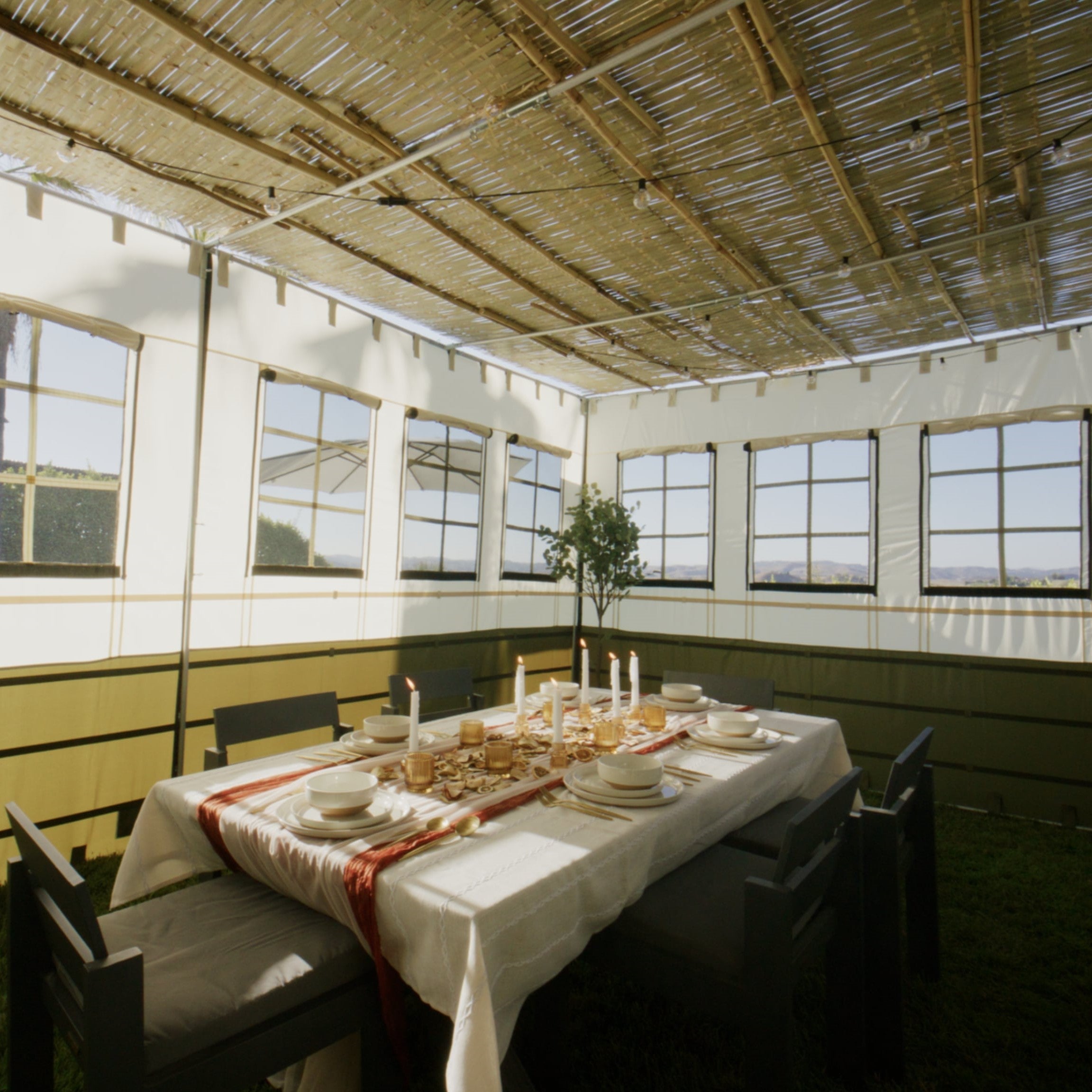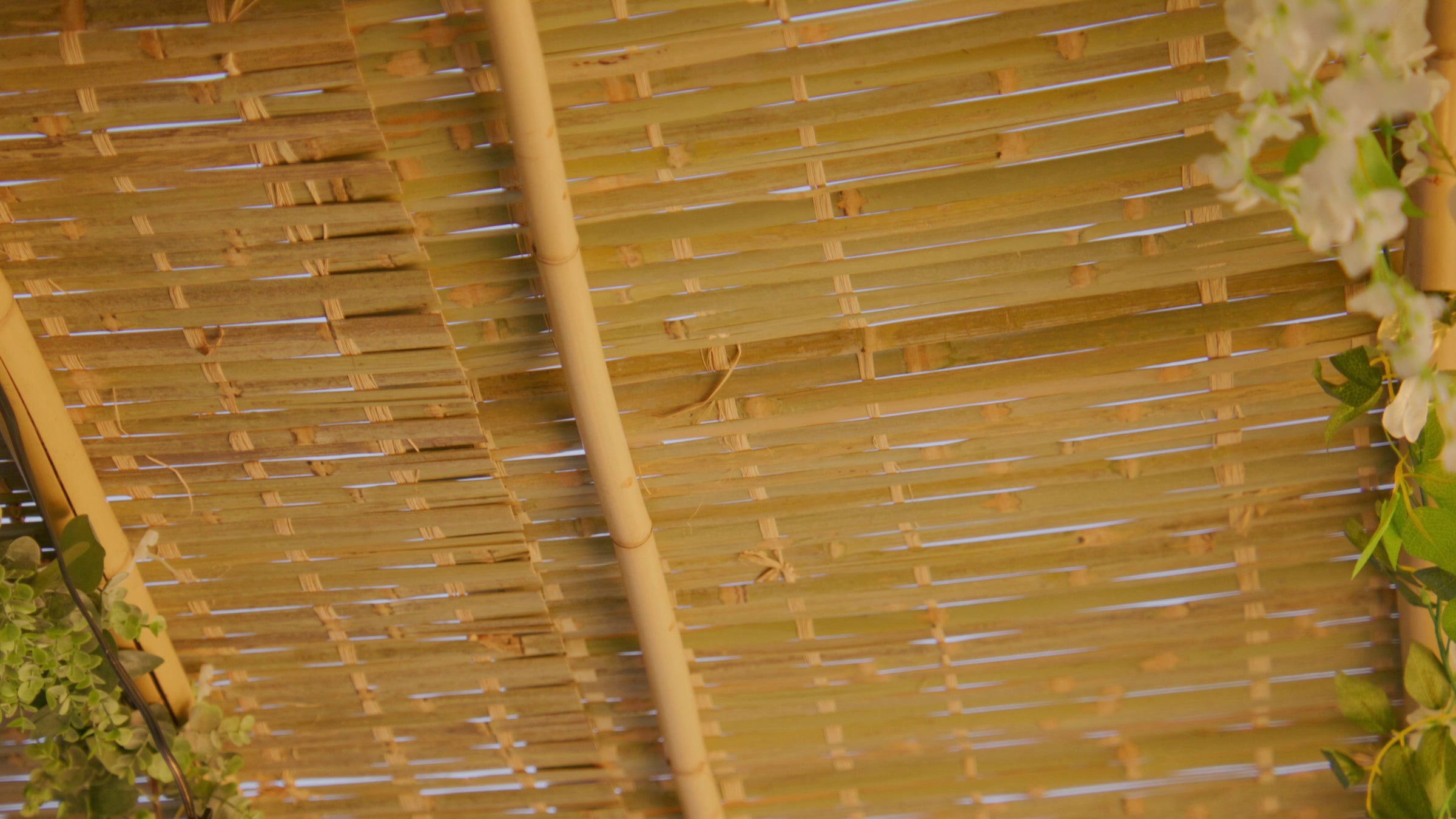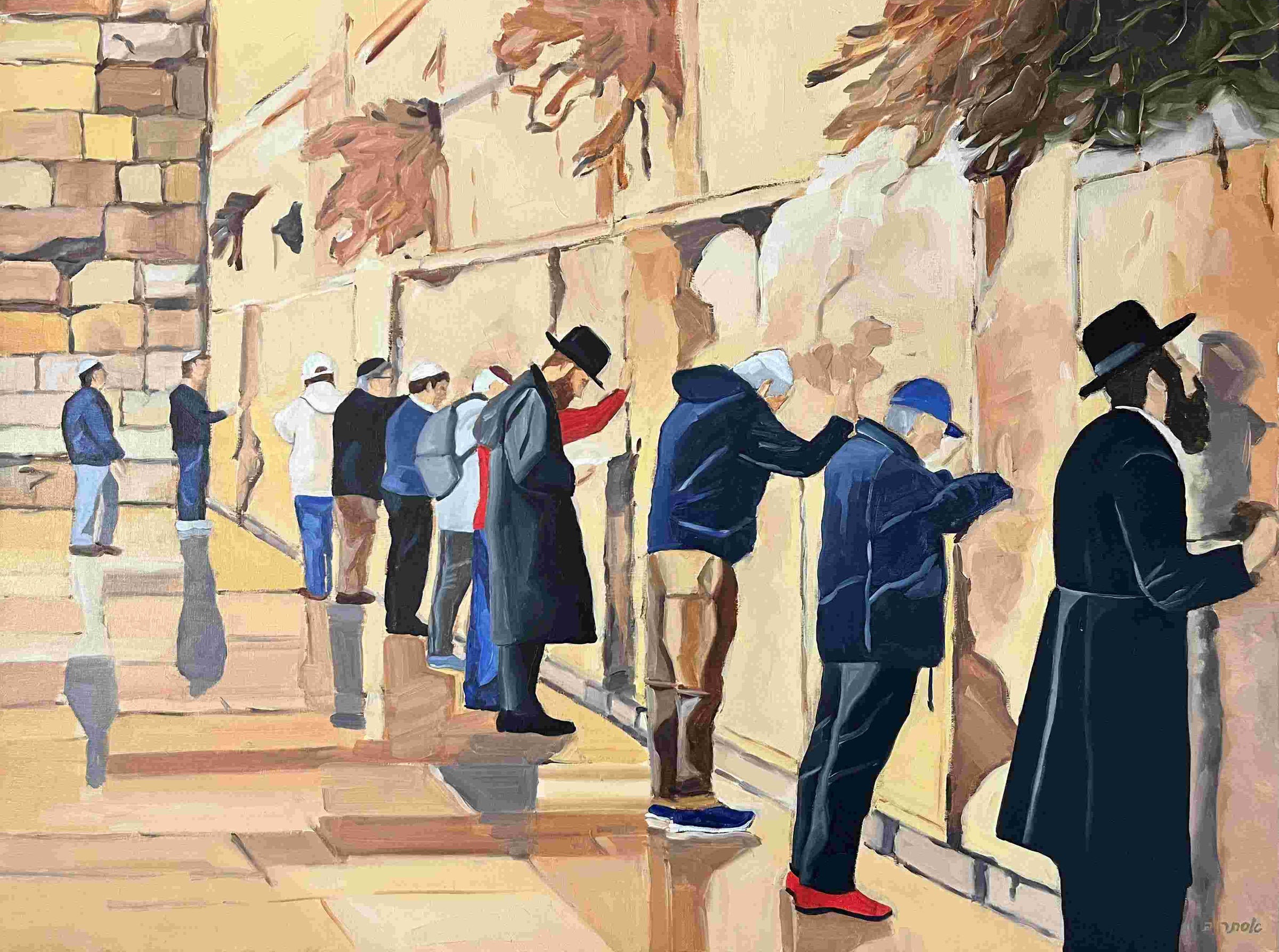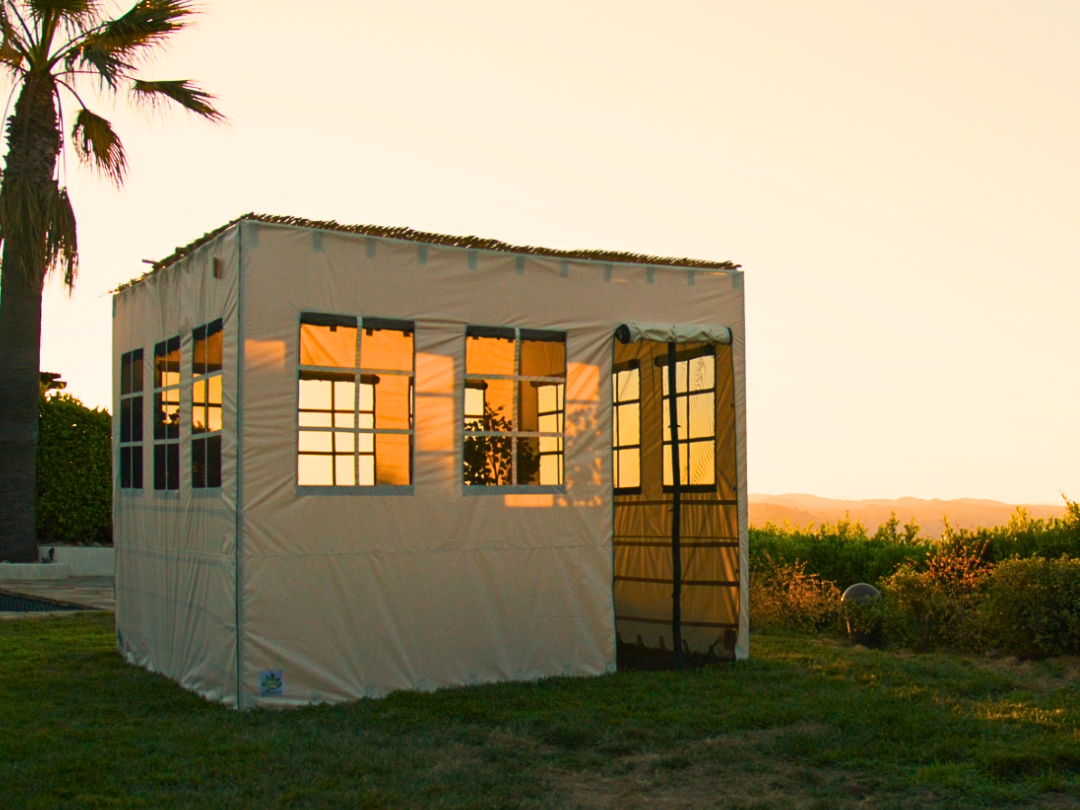

Table of contents
During Sukkot, meals are meant to be enjoyed inside a Sukkah. But what if you don’t have your own Sukkah handy? Is it kosher to use someone else's? And what does the verse in Deuteronomy 16:14, “ make for yourself the festival of Sukkot ” really mean?
The Case of the Borrowed Sukkah
You’ve got to have your meals in the Sukkah for all seven days, but if you’re just grabbing a quick snack, you can do that outside. Still, many people are so dedicated that they won’t even munch on a single cracker outside the Sukkah!
Now, picture this: You don’t have your own Sukkah, or maybe you’ve got one at home, but you’re out and about during the holiday. The kids are getting hangry, yelling, “When can we eat our salami sandwiches already?!” And then you spot a Sukkah on some stranger’s lawn, and, oh no, they’re not home. What do you do? Can you just waltz in and nosh away, or is that like “borrowing” their Sukkah without asking?
Our Rabbis unpack the answer directly from the verse we met above:
“You shall make for yourself the festival of Sukkot…”
But what does the “for yourself” part really mean?
In other mitzvot, like wearing a tallit or taking the Four Species on Sukkot , “for yourself” means that you need to own the item. If you want to say a blessing on a tallit, it has to be your tallit. Same with the Four Species – you’ve got to acquire them or have someone gift them to you, even if just temporarily. So, does that mean your Sukkah has to be your own too? Maybe you can’t just crash in someone else’s Sukkah?
When it comes to the mitzvah of Sukkah, though, being a guest is not only allowed, it’s encouraged! The verse says, “Every member of the Jewish people will sit in Sukkot. ” From this, the Rabbis teach that “all the Jewish people can sit in one Sukkah together.” In other words: We’re all welcome.
The verse says, “ You shall dwell in Sukkot for seven days.” Dwelling means living in it, like it’s your own home. So, when someone invites you into their Sukkah, they’re inviting you to treat it as your own – “mi casa es su casa,” make yourself at home! Turns out, you can’t just be a guest in a Sukkah; once you’re there, it’s like your own place.
The Rabbis therefore concluded that the “for yourself” bit is actually there to teach you can’t fulfill the mitzvah in a stolen Sukkah.
…so how do you steal a Sukkah?
How Do You Steal A Sukkah?
It’s actually not as easy as it sounds.
Let’s imagine Moishie and his crew of (Jewish) mischief-makers break into Shlomo’s Sukkah, kick Shlomo and his family out, and settle in for a cozy meal. Did they just steal the Sukkah? Not exactly. You can’t technically steal a Sukkah just by sitting in it – real estate doesn’t work that way. What Moishie and his gang did was definitely trespassing, and while they can't say a blessing on a mitzvah that started with a crime, they haven’t technically stolen anything. And, ironically, they’re still fulfilling the mitzvah of sitting in a Sukkah…just not in the most kosher way.
Now, let’s flip the scenario. Say Shlomo and his buddies build their own Sukkah – using their own materials – on Moishie’s property. Moishie, not thrilled with the surprise construction, calls the cops and boots them out. Now Moishie and his family sit down to enjoy their new, free Sukkah. There’s a catch: the Sukkah is made from someone else’s materials, and since it’s on Moishie’s land without permission, Moishie is now sitting in what’s technically a stolen Sukkah. And that’s a big no-no, and the mitzvah of sitting in the Sukkah cannot be fulfilled.
The same applies if Moishie tows away a Sukkah that Shlomo built on the back of his truck or yacht, even if the vehicle belongs to Moishie.
Let’s take this even further. Imagine Shlomo actually asked Moishie for permission to build a Sukkah on Moishie’s property, and Moishie said yes. Shlomo sets up his Sukkah, but then Moishie decides to take over and kicks Shlomo out. So, who’s stealing from whom here?
Turns out that this time, nobody is really stealing the Sukkah. Since Moishie let Shlomo use the land for the holiday, the Sukkah remains Shlomo’s, and while Moishie might have committed a minor crime, he hasn’t technically stolen anything.
Of course, Moishie shouldn’t just waltz into Shlomo’s Sukkah while he’s sitting there unless he’s invited. Maybe Shlomo doesn’t want an unexpected audience while he’s munching on his Kreplech [link to kreplech article]. In this case, forget the whole "mi casa es su casa" thing – Moishie’s definitely not welcome to make himself at home.
The same goes for Shlomo building a Sukkah on Moishie’s property without asking. Moishie might be cool with someone doing a mitzvah on his turf, but only to a point. We’re talking about a structure that’s sticking around for a week, so Moishie might not be thrilled. That means, in this case, Shlomo’s Sukkah could be considered stolen.
But let’s be real – if Shlomo’s Sukkah is empty, and Shlomo isn’t causing any damage, Shlomo would probably be happy to know someone’s using his Sukkah for a mitzvah. It’s always better to ask first, but if you and your kids happen to stop by this empty Sukkah for a quick sandwich, as long as you leave it as you found it, you’re probably good to go.
Stolen Branches
Now, let’s say Shlomo doesn’t crash into Moishie’s Sukkah but instead snips a few branches from Moishie’s cedar tree to use for Schach (the Sukkah’s roof covering). That’s definitely stealing, but does it make his Sukkah stolen too?
It depends. If Shlomo plans to pay Moishie back for the branches, he can lean on a Talmudic ruling that makes the Schach his, so he won’t have to rebuild the whole thing. But if Shlomo’s got no intention of paying, then yes, it’s a stolen Sukkah.
So, when you’re gathering your Schach, make sure to get permission from the tree’s owner. Even better, offer to pay them in advance, just in case they change their mind. If the owner isn’t Jewish, pay them or hire someone else (who won’t be using your Sukkah) to do the cutting. And whatever you do, don’t take branches from public property without permission – it’s a lot harder to get the okay for that!
The Stolen Sukkah: Building a Sukkah on Public Property
So, you’ve run out of room on your property to build a Sukkah – now what? Can you just set it up on the sidewalk or another public space?
Well, generally speaking, the answer is a friendly “nope.” Even if your neighborhood is full of fellow Jews, they probably won’t love tripping over your Sukkah on their morning stroll. Technically, you’d be sitting in a kosher Sukkah , since it’s not exactly “stolen,” but it’s also not the best setup – after all, it’s not really borrowed either. (Though in some streets in Israel, Sukkot popping up everywhere is a source of communal joy!)
But here’s the good news: If you do get the green light from the public, you’re all set! Feel free to park your sukkahmobile in a public spot and invite the whole crew to join in on the mitzvah!
